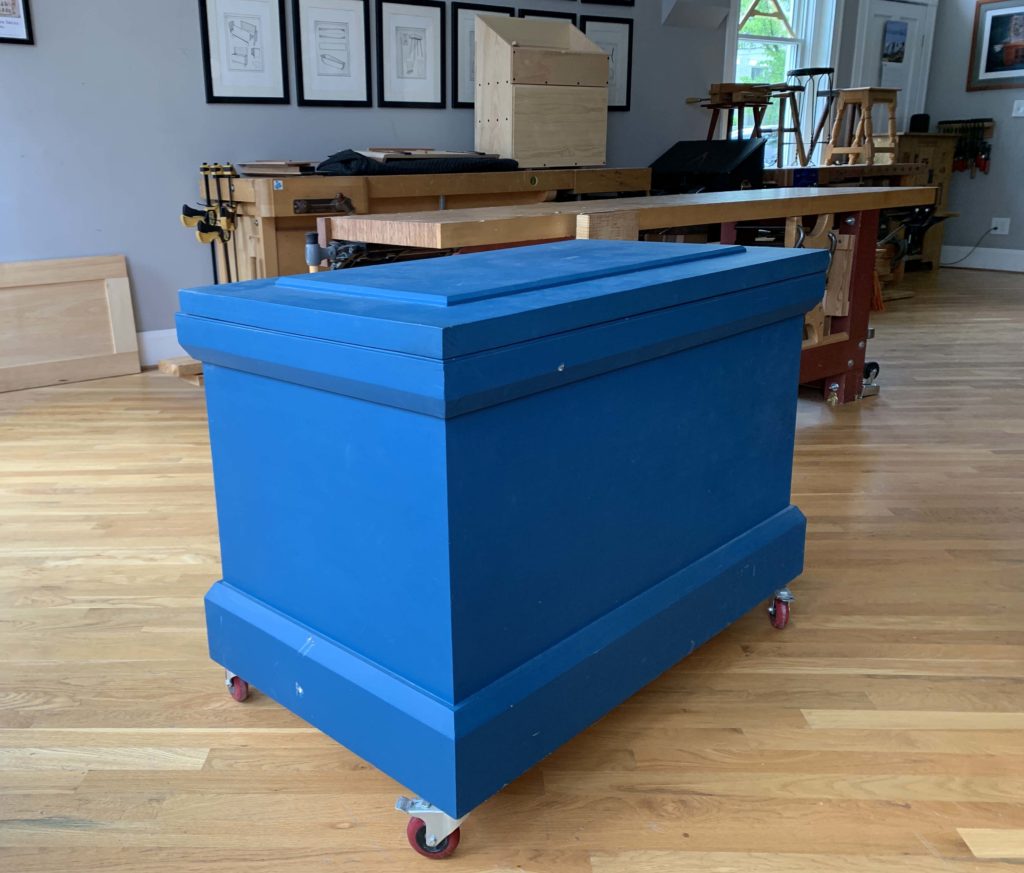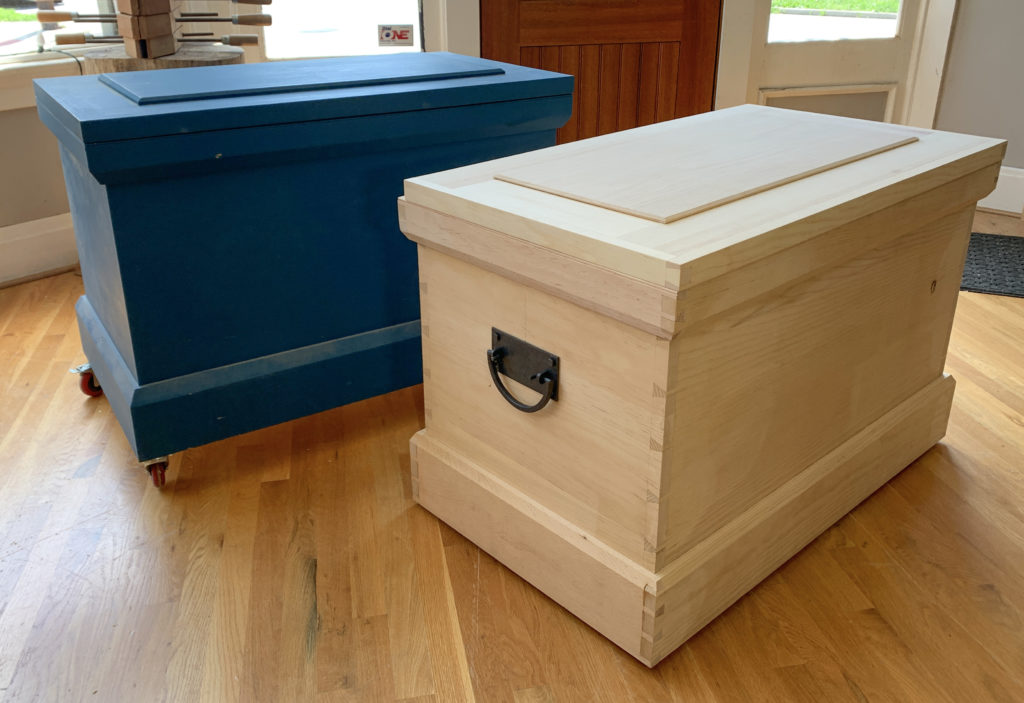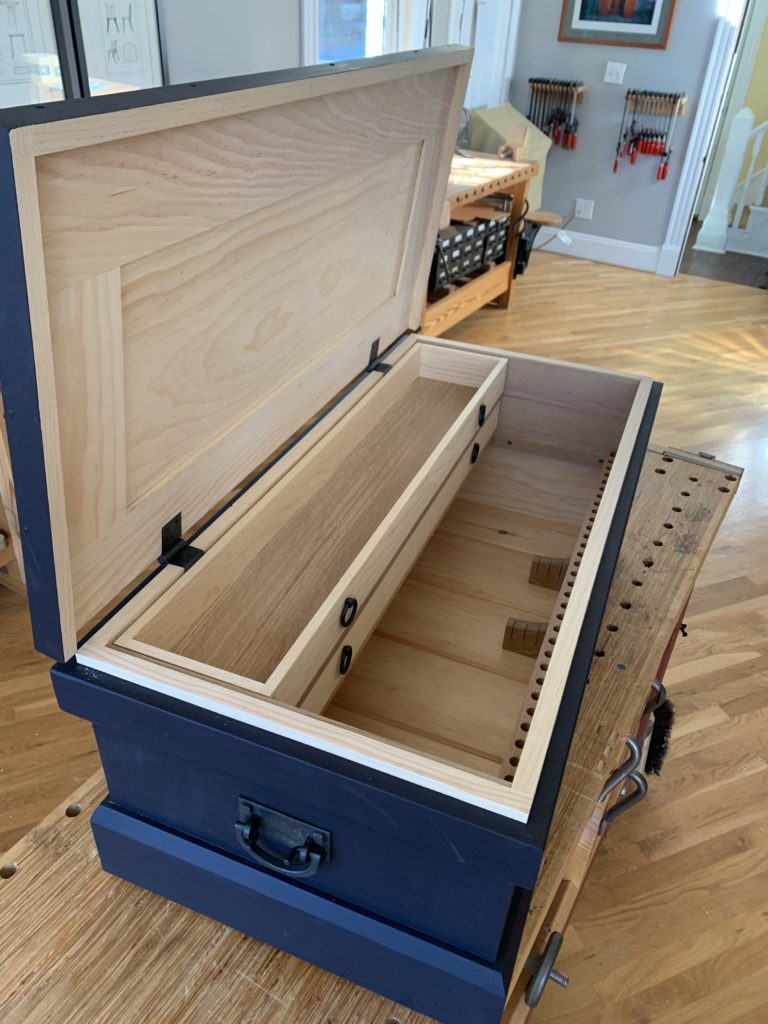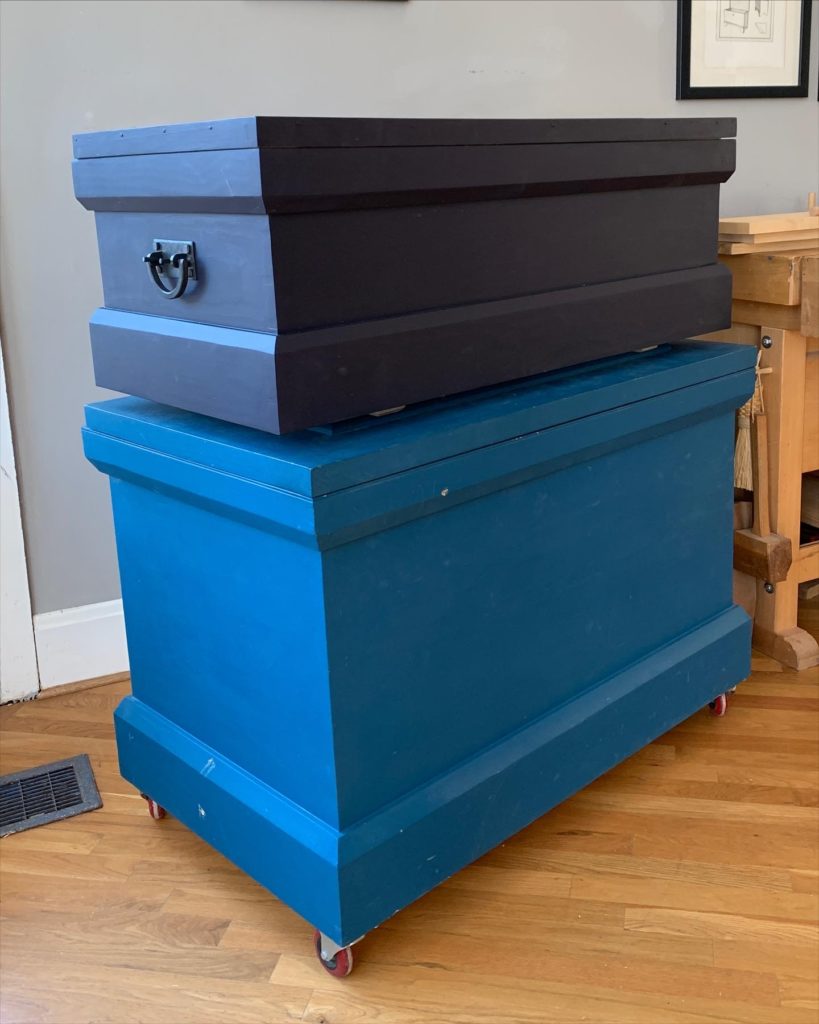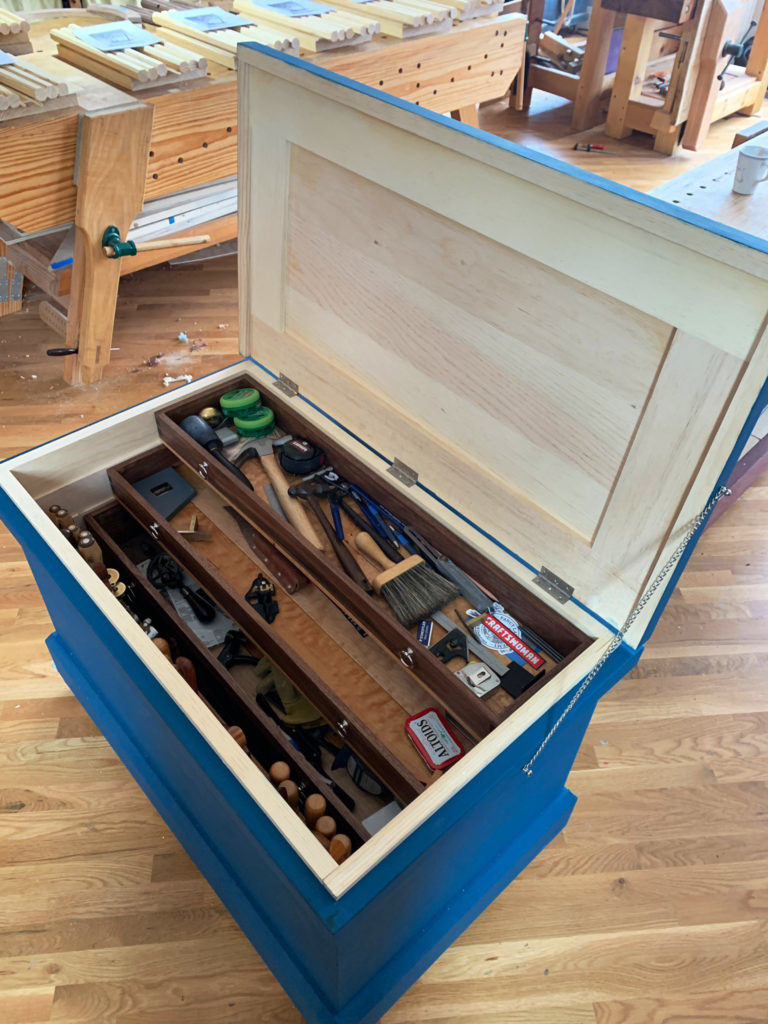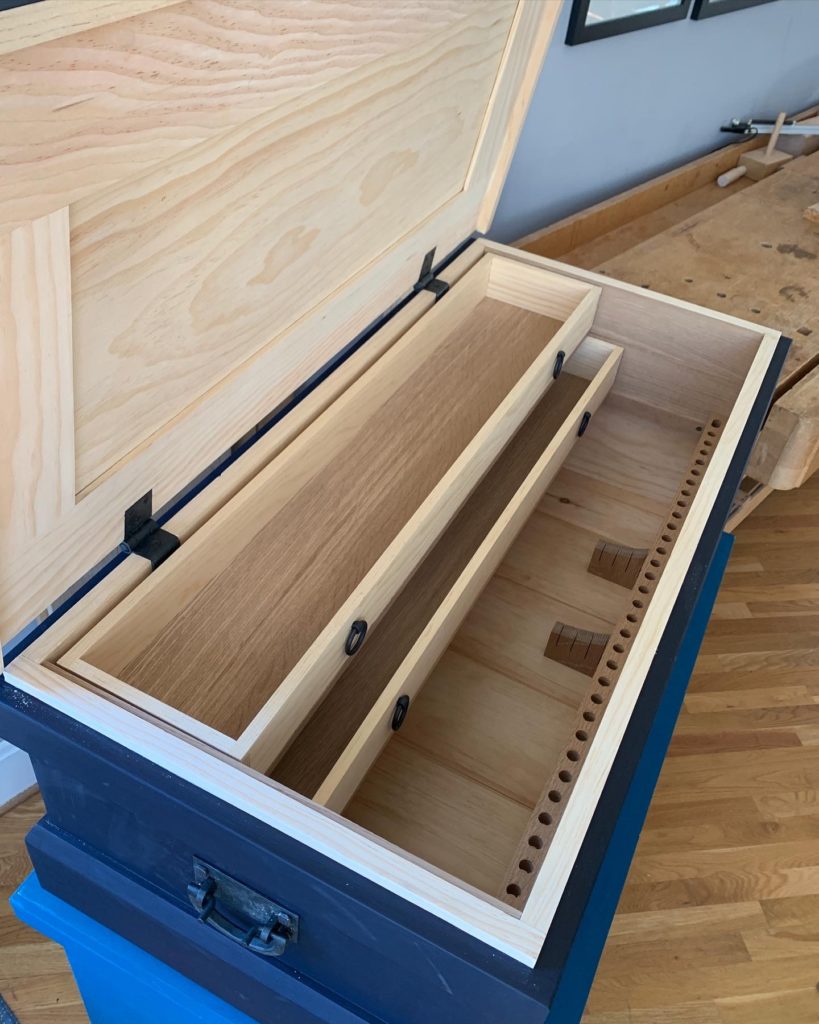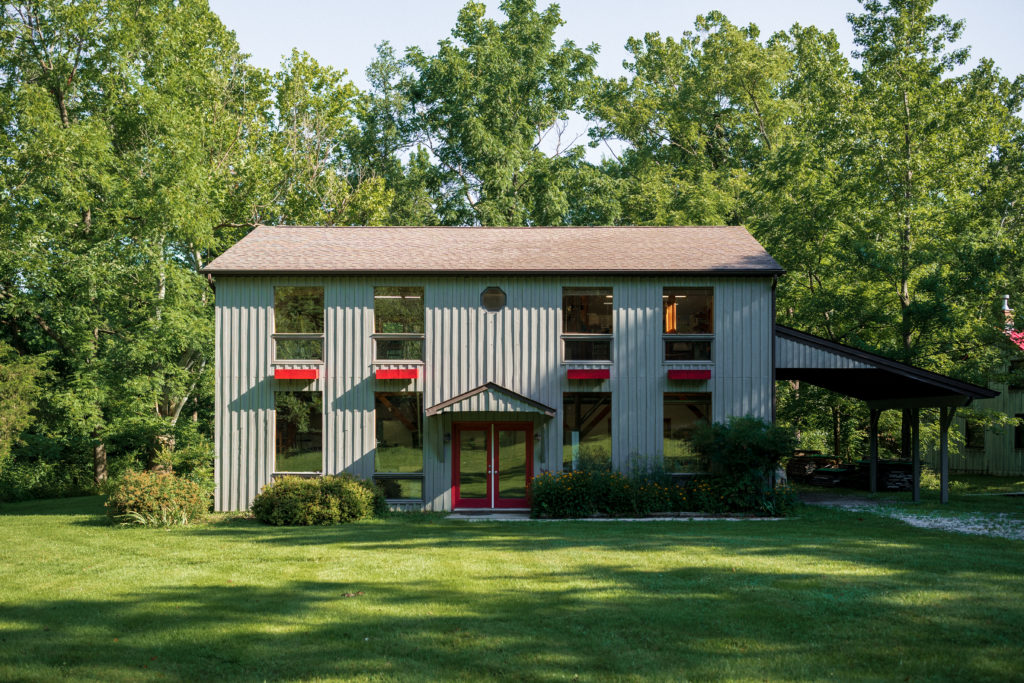Class Date(s): Monday, June 13 through Friday, June 17. 9am until 5pm.
Class Instructor: Megan Fitzpatrick
Title: Anarchist’s Tool Chest
Cost: $1450
Class Description: Aside from a workbench, a sturdy tool chest is one of the most important things to have in your shop. It organizes and protects your tools from damage, rust and loss. While many woodworkers have attempted to improve upon the traditional chest design that emerged 300 years ago, the old form has remained the absolute best way to keep the most tools in the smallest space. And if you need an even slightly smaller footprint for your chest, you’re in luck. In this class, you can choose between making a full-size chest (25-3/4” tall, 24” front to back, 40-1/4” long) or a traveling version that will fit into the back of a car or truck (14-1/2” high, 19-1/2” front to back, 39-1/2” long). The full-size chest will hold a complete set of the hand tools typically used for furniture work; the travel size chest will hold most of them.
In this five-day class you will build the shell of your own traditional tool chest using hand tools and techniques. This is an excellent first project for a new hand-tool woodworker. Skills you will learn in this class include:
• Truing up panels using bench planes
• Traditional through-dovetail joinery
• Cutting basic mouldings by hand
By the end of class you will have all the skills you need to complete the interior of the chest at your workshop at home, whether you want to make just a few sliding tills or even a full-blown interior cabinet with dovetailled drawers.
If you’d like to learn or improve your dovetails this is absolutely the class for you – you’ll get plenty of instruction and practice as you make a handsome and (almost) bomb-proof tool chest.
Wood is included. Hardware is not included; Megan will send a list of suggestions at various price points.
Lunches provided.
Tool List: ATC Tool List (the ones you need to build it – not all the stuff you’d want to put in it…)
Smoothing plane
Jack plane
Block plane
Marking or cutting gauge
Marking knife.05 or .03 mechanical pencil
Dividers (2 pair if you’ve got ‘em)
12” combo square
Dovetail marking gauge or sliding bevel
Dovetail saw
Chisels ½” and 3/8”
Mallet
Rabbeting plane, moving fillister or a large shoulder plane
Hammer
Coping saw with extra blades (I recommend Pegas blades)
3/16” Beading plane
Flush-cut saw
Drill and bits
And any other tools you just can’t bear to be without. For me, that includes my waterstones and honing guide, a 6” adjustable square, a double square (a.k.a. diemaker’s square or machinist’s square) and multiple pencils.
Oh – and if you’re driving and have long cabinet clamps (39” or longer) and don’t mind bringing a few, we can always use more clamps in this class!
And don’t worry if you don’t have/can’t get all the tools listed above; we have some to share.

